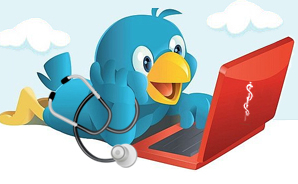The Management of Healthcare Accounts With New Medical Coding Training

The task of medical billing and coding is concerned with the process of submitting and following up on insurance claims. Reimbursement by the healthcare provider is an important segment as well. The process is same for both private companies and government sponsored programs.
The U.S. bureau of Labor Statistics revealed the marked rise in the demand as well as the annual pay of healthcare managers since 2008. According to the report, there were around 179,500 medical records technicians working in the healthcare industry, a number supported by new efforts to make medical coding training a standard requirement for healthcare professionals. The job outlook for the coming years has been predicted to rise at a faster than average rate of 21%.
Read the full report here.
The Job
Medical records and health information technicians should be able to discuss the information of the patient and/or any discrepancy with professionals that include the doctors and insurance professionals.
One of the key elements in this case is the health information data. The idea is that the technicians should be able to organize and manage the data efficiently. The quality as well as the accessibility and protection of the data should be made possible on paper and electronic form. This leads to another important aspect, which is the classification system.
The scope of medical coding training dictates the use of classification systems that can code and subsequently categorize the information of the patient. This information can then be used for reimbursement, maintenance of history, database management among other things.
The Innovation
A recent survey indicates the vulnerability of the general U.S. population to lose money when it comes to health insurance plans. In order to manage, the role of coding experts and related technicians becomes important.
With the efforts from such technicians, an interactive customer tool has been launched which allows the public to find the best suited health plan. This indicates that there are a lot of employment options for such professionals.
With more influx of electronic health records (EHR), the job responsibility and the financial worth of the technicians would continue to increase. This also indicates the need for enhanced skill sets like electronic health record (HER) security and privacy practices.
The Certifications
Educational qualifications and academic needs for healthcare information technicians is an important domain in itself. Courses related to medical record technicians that are approved by the National Institute of Health (NIH) formulate the national certification.
It’s important to note that many employers demand certifications. In the current status quo, there are two national organizations that are approved to provide certification for coders. These include:
– The American Academy of Professional Coders
– The American Health Information Management Association
Among the two that have been described above, the American Health Information Management Association is widely recognized. It offers two certifications: Certified Coding Associate (CCA) and Certified Coding Specialist (CCS).
The Job Outlook
As stressed earlier, the employment of such technicians is expected to rise in the coming years. In many ways, the rate would be higher than as compared to other professions in the healthcare sector.
The demand for health services is on the rise, especially in light of the new Obamacare policy. So there would be more tests, treatments and procedures. This translates to more claims of reimbursement and insurance coverage.
According to the U.S. Bureau of Labor Statistics, the lowest 10 percent in the medical records and health information technicians’ category earned $21,240 annually. On the other hand, the top 10 percent earned in excess of $53,400. The median annual wage for health technologists and technicians was higher ($39.340) as compared to medical records technicians ($32,350) in 2010. However, the gap is bridging fast as integrated models are emerging.
The future
As far as medical billers are concerned, U.S. health news has conducted an analysis on different states based upon their insurance plans. They have been rated based upon the diversity of coverage and also the kind of job opportunities for coding and billing experts.
In this regard, Massachusetts has one of the best forms of diverse coverage. It has at least 67 different plans, which have been given four to five star ratings. So it has a base rating of 100% with respect to healthcare informatics professionals. Next is New York with 94% followed by Washington with 85%. Other significant states include Maryland with 76% and Virginia with 75%.
On the lower extreme, the lowest ratings have been attributed with Alaska with 10% followed by Wisconsin with 15%.
With the centers for Medicare and Medicaid services (CMS) expanding, career opportunities for the aforementioned individuals are on the rise. The health insurers also periodically revise plans, expanding the earning potential of coding and billing experts.
Article by Jennifer Smith






